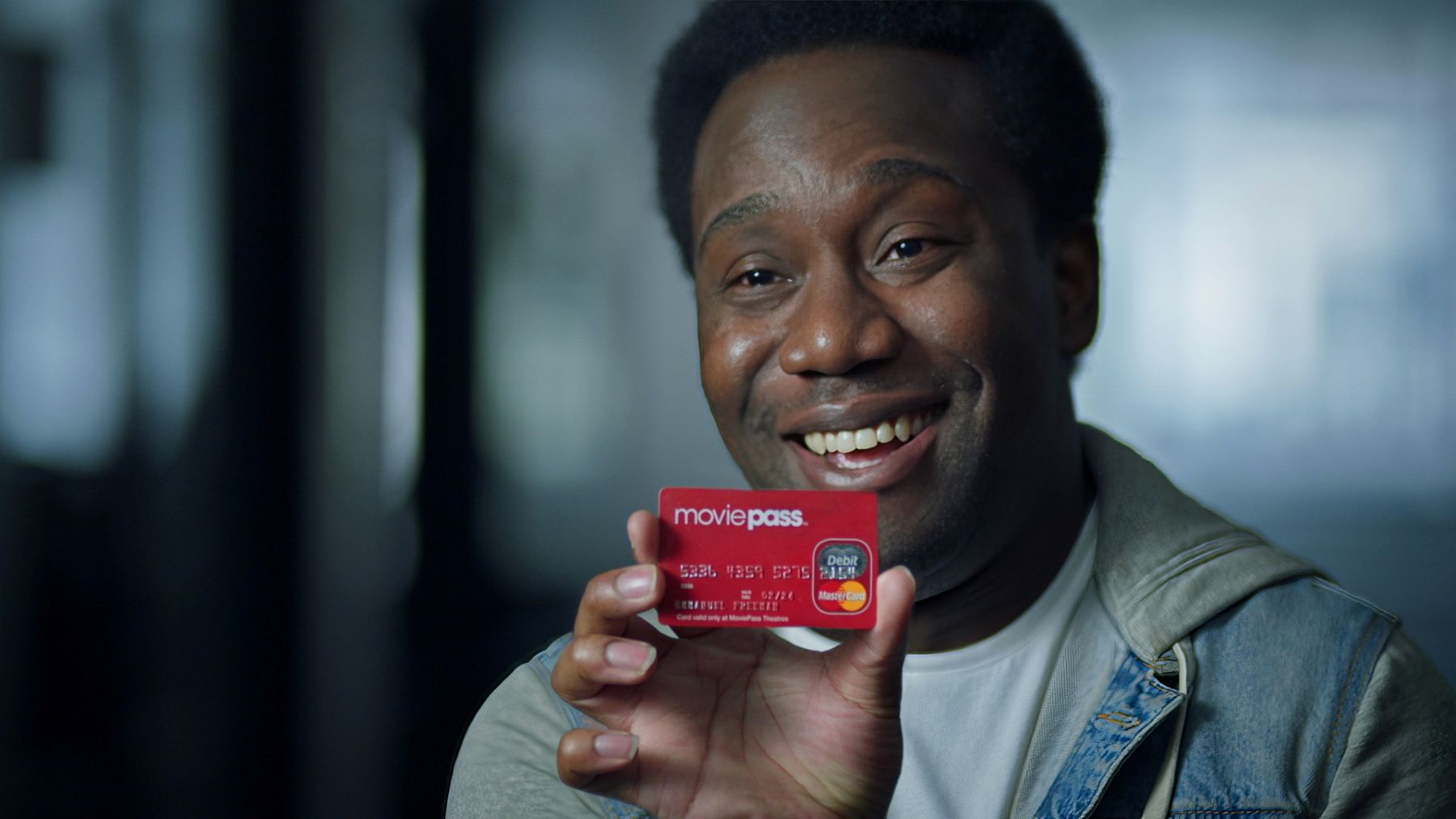I was a MoviePass devotee, here's why the MoviePass, MovieCrash doc got me riled up
It was more than a poor business model that killed the revolutionary movie subscription service.

Even before it was my job, I saw a lot of movies in movie theaters. So when the movie subscription service MoviePass came out with a plan in 2017 allowing people to see a movie a day for just $10 per month, you bet I signed up and quickly went about making sure I got the better end of that deal.
The $10 per month price was basically the cost of an average movie ticket price in 2017, so seeing one movie a month paid for it and going to any more was basically a free ticket. I would typically see at least a movie a week with MoviePass. That was the case for many (some saw even more than me), as the business model quickly — and predictably — became too good to be true. MoviePass had a historic rise after announcing the deal and then an even more historic crash to the point the service was shuttered in 2019.
I would often joke with friends that I was responsible for killing MoviePass, but it was truly baffling that a company could stumble the way they did in such a short amount of time. Which was why I was intrigued to watch MoviePass, MovieCrash, the HBO documentary (now streaming on Max). Watching the movie brought back fond memories of seeing movies without worrying about the cost. But it also got me angry to see the real reason MoviePass suffered an embarrassing collapse: they made a deal with the devil.
That is more or less how the documentary paints Ted Farnsworth, the former CEO of Helios and Matheson Analytics who came to lead MoviePass with Mitch Lowe through the period of the $10 per month plan, the company's initial rise to being a stock market darling and then their spectacular collapse, highlighted by questionable and possibly illegal business decisions.
In case you didn't know, MoviePass actually was around before it launched its $10-per-month plan. It was founded in 2011 by Stacy Spikes and Hamet Watt, two entrepreneurs who had the goal of disrupting the movie industry with a subscription model to bring audiences back to movie theaters more regularly. Initial plans were closer to $40 per month from founding to 2016, with MoviePass reaching a peak of about 20,000 subscribers and then hovering around that.
MoviePass investors — represented in the doc by Chris Kelly — thought they should bring in a new voice to help raise some much needed funds to keep MoviePass growing. Enter Mitch Lowe, who had previously worked with Netflix and RedBox, as the new CEO. In the pursuit of more seed money, Lowe quickly went to Farnsworth, who was prepared to offer millions of dollars to support MoviePass, but only if they were able to add 100,000 subscribers over six months.
This was the impetus for the $10 per month. Lowe admits in the documentary the movie was primarily made to get attention, but it worked. Shortly after the deal was announced, MoviePass added 100,000 new subscribers in a 48 hour period and then 75,000 in a single day. That number would quickly rise to 1.5 million subscribers. And just like that, MoviePass went from being a little-known service to the thing that every movie fan was talking about and the hottest stock on the market.
The latest updates, reviews and unmissable series to watch and more!
But Spikes saw the cracks in the system. He says he worried early on that they could not sustain the $10-a-month plan for long and the high demand would put a strain on their small staff in charge of handling customer service and technical support. But Farnsworth and Lowe assured everyone they had control of things and eventually made the push to oust both Spikes and Watt from the company they created.

With Farnsworth and Lowe now in control, things truly began to spiral. They spent lavishly on parties and promotions — including renting a mansion at the Sundance Film Festival and getting Dennis Rodman and social media influence OG Bunny to rep MoviePass at Coachella for some reason; they hired family and friends, like Bob Ellis, as well as smooth talkers that would prove untrustworthy, like Khalid Itum; and they would continue to sell the idea that despite the seemingly obvious fact that the $10-per-month plan could not be making them money, they were on track to become a healthy and profitable company, which helped the stock continue to rise.
Then the bottom fell out. First was a report revealing the true financial situation of MoviePass: they lost $150 million since Farnsworth and Lowe took over; Spikes says when he was running things they would lose $200,000 a month, not $30 million like his successors. Then, in an effort to shrink those losses, changes were installed to MoviePass with little to no warning to subscribers, including limiting what movies could be seen and when, only allowing subscribers to see three movies a month and requiring ticket verification.
It all came to a head with the release of Mission: Impossible — Fallout. There is an audio recording of Lowe in a meeting explicitly saying they wanted to limit people's ability to see the movie to help ease their losses. These restrictions and technical issues with the app angered so many people that public opinion began to turn on MoviePass. It was around this time that I dropped my MoviePass subscription.
With the shine off, MoviePass stock began to drop and about a year after Farnsworth and Lowe became the face of the company, it was over. Worse, a few years after the pair were accused of illegal business practices, including fraud; something they apparently knew was a possibility as they planned things like the Mission: Impossible strategy. Ultimately they settled on some of the accusations, but are still awaiting trial on security fraud and wire fraud charges. Elsewhere, Itum was found guilty for embezzling money from the company.
I remember reading bits and pieces about all this over the last few years, but it never really stuck with me until watching MoviePass, MovieCrash and hearing Spikes and others speak about the "con artist" Farnsworth was. Farnsworth did not appear in the documentary; Lowe did, but his version of things rings hollow based on everything other subjects detail.

But the thing that truly got me angry about MoviePass is that Spikes and Watt, who had a passion and vision for MoviePass to change moviegoing for the better, were short shifted, and so were moviegoers. Even before they were ousted, Spikes and Watt were pushed to the sideline as Lowe and Farnsworth became the faces of the company and were sometimes miscredited as its founders. The documentary fully acknowledges the racial factors in this, why having two White men was a better image for Wall Street than having two Black men running things. Spikes and Watt built MoviePass from the ground up but were replaced by men who saw an opportunity to make some quick money and then played the fiddle as Rome burned.
Then there are a number of former MoviePass subscribers who admit that after their experience with the service turned sour their moviegoing habits decreased or went away completely. Even though most movie theater chains offer similar type programs (though nothing like a movie a day), no movie going subscription service has risen to the same heights to inspire similar excitement in going to the movies.
That includes MoviePass 2.0, which Spikes refounded and launched in 2022 with a new business model that he describes in the documentary as finally cracking the code to make the company successful. I did try the Beta version of the new MoviePass when it relaunched, but there were still some bugs that needed to be worked out and I had become accustomed to other movie theater subscriptions that I felt more comfortable with at the time. Even so, Spikes prediction proves to be bearing fruit, as the documentary says that in 2023 MoviePass had its first profitable year in its history.
So at least there is a silver lining to all of this. MoviePass of 2017/2018 was too good to be true and the actions of two men burned a lot of people. But one of them, Spikes, was able to recover, reclaim what was his and has it going better than ever. It took a while to get there, but that's not a bad happy ending.
MoviePass, MovieCrash is now streaming on Max.

Michael Balderston is What to Watch’s assistant managing editor and lead movie writer, , writing movie reviews and highlighting new and classic movies on streaming services; he also covers a range of TV shows, including those in the Taylor Sheridan universe, Slow Horses, Only Murders in the Building, Jeopardy!, Saturday Night Live and more, as well as the best ways to watch some major US sporting events.
Based outside of Washington, D.C., Michael's previous experience includes writing for Awards Circuit, TV Technology and The Wrap.
Michael’s favorite movie of all time is Casablanca, while his favorite TV show is Seinfeld. Some 2025 favorites include Sinners, One of Them Days and Black Bag for movies, and The Pitt on TV. Follow on Michael Balderston on Letterboxd.

